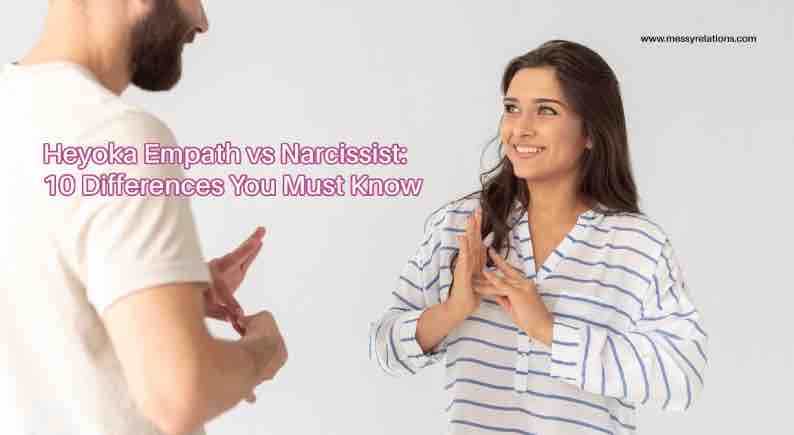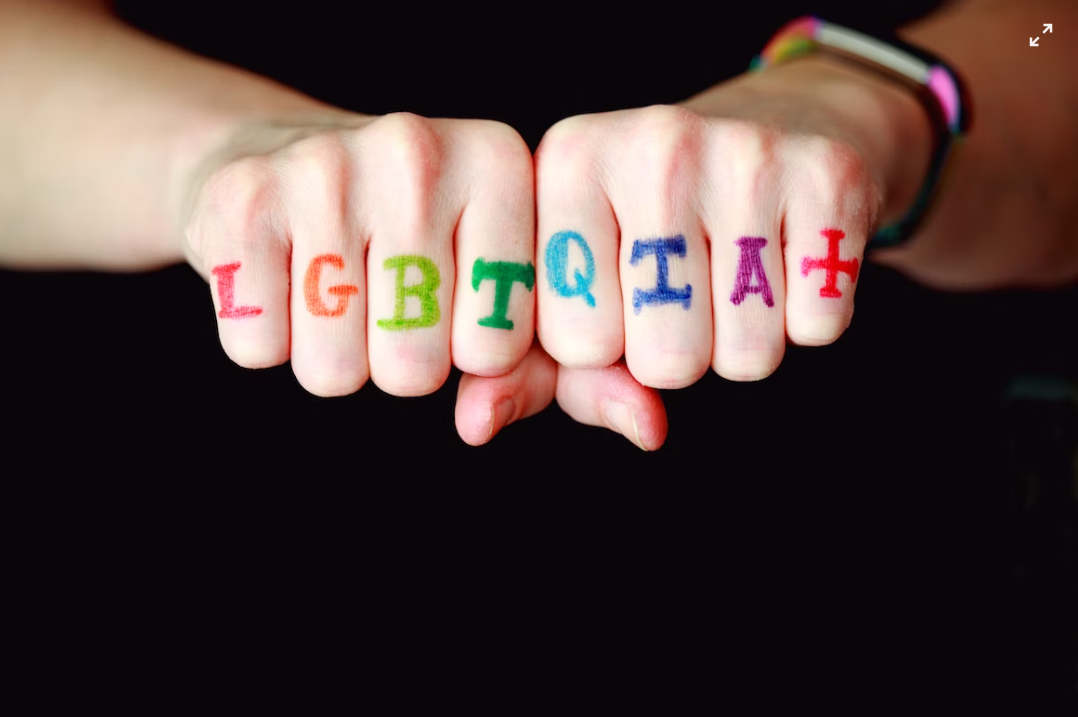In the intricate dance of human personalities, the contrast between a Heyoka empath and a narcissist is stark, each embodying fundamentally different approaches to life, relationships, and self-awareness. Understanding these differences is crucial, as it can illuminate much about the dynamics in various interpersonal relationships and help us navigate them more effectively.
1. Emotional Awareness and Sensitivity
Heyoka Empath: Heyoka empaths are deeply attuned to the emotions of those around them, often feeling these emotions as if they were their own. Their heightened sensitivity allows them to connect with others on a profound level, offering empathy and understanding.
Narcissist: Narcissists, on the other hand, often lack this depth of emotional awareness. Their understanding of others’ feelings is typically superficial, primarily viewed through the lens of how it relates to their own needs and desires.
2. Intentions in Relationships
Heyoka Empath: In relationships, Heyoka empaths seek to nurture, heal, and empower. They use their abilities to reflect emotions and encourage growth, often putting the needs of others before their own.
Narcissist: Narcissists enter relationships with an eye towards what they can gain. Their interactions are often self-serving, with little genuine concern for the other’s well-being unless it serves their interests.
3. Approach to Conflict
Heyoka Empath: When faced with conflict, Heyoka empaths often seek resolution that acknowledges everyone’s feelings and perspectives. They use their empathic abilities to navigate disputes with compassion and understanding.
Narcissist: Narcissists tend to approach conflict from a place of defensiveness and a desire to win, often at the expense of others. They may use manipulation or aggression to assert their dominance in the situation.
4. Self-Reflection and Growth
Heyoka Empath: A hallmark of Heyoka empaths is their capacity for deep self-reflection and a constant quest for personal growth. They are open to facing uncomfortable truths about themselves if it means evolving.
Narcissist: Narcissists generally resist introspection that may reveal flaws or weaknesses. They often have a fixed self-image that they protect at all costs, avoiding any acknowledgment of mistakes or shortcomings.
5. Use of Power and Influence
Heyoka Empath: Heyoka empaths wield their influence with care, often aiming to empower others. They are mindful of the impact they have and strive to use their abilities for healing and positive growth.
Narcissist: Narcissists are more likely to use their power and influence for personal gain, manipulating situations and people to maintain control and feed their ego.
6. Handling Criticism
Heyoka Empath: Criticism, when constructive, is often welcomed by Heyoka empaths as a tool for growth. They listen and reflect on feedback, even if it’s challenging to hear.
Narcissist: Narcissists typically have a hard time handling criticism, often reacting with anger or defensiveness. They may dismiss or retaliate against feedback that they perceive as a threat to their self-image.
7. Empathy vs. Sympathy
Heyoka Empath: True to their nature, Heyoka empaths embody empathy, meaning they can not only sympathize with others but also genuinely share in their feelings and experiences.
Narcissist: Narcissists might display sympathy, a more detached form of concern, but often lack the ability to truly empathize with others’ emotional states.
8. Authenticity in Interactions
Heyoka Empath: Authenticity is key for Heyoka empaths. They value genuine connections and are often open and honest in their interactions, even when it makes them vulnerable.
Narcissist: Narcissists may project whatever image they believe will gain them admiration or advantage, often leading to interactions that are superficial and lacking in genuine connection.
9. Approach to Personal Boundaries
Heyoka Empath: Although they are deeply empathic, Heyoka empaths recognize the importance of personal boundaries for their well-being and the health of their relationships.
Narcissist: Narcissists often have little regard for the boundaries of others, viewing them as obstacles to their desires and needs.
10. Source of Self-Worth
Heyoka Empath: The self-worth of a Heyoka empath is often derived from their inner sense of purpose and the meaningful connections they make with others.
Narcissist: For narcissists, self-worth is frequently tied to external validation, achievements, and the admiration of others, leading to a constant pursuit of these external markers of success.
The distinctions between a Heyoka empath and a narcissist are profound, reflecting divergent paths of emotional engagement, self-perception, andNarcissist:** Narcissists, on the other hand, often struggle with emotional empathy. They may be aware of others’ emotions but primarily as a way to manipulate or control, rather than connect or empathize.
FAQ’s – Frequently Asked Questions
1. What is Heyoka Empath?
A Heyoka Empath, often regarded as the most powerful type of empath, holds a unique and sacred position within the realm of empathy and emotional connectivity. Rooted in Native American traditions, particularly among the Lakota people, the term “Heyoka” translates to “sacred clown” or “fool.” This nomenclature, however, doesn’t undermine the profound impact and significance of a Heyoka; instead, it highlights their unique approach to healing and guiding others through mirror-like reflections, humor, and paradoxical behavior.
2. What are the characteristics of Heyoka Empath?
The defining characteristic of a Heyoka empath is their innate ability to mirror the emotions and energies of those around them. Unlike traditional empaths who absorb and internalize the feelings of others, Heyokas reflect these emotions back to the individual. This mirroring acts as a catalyst for self-awareness and personal growth, encouraging individuals to confront their own emotional states and hidden aspects of their psyche. The Heyoka’s reflection is not always comfortable but is designed to initiate a journey of self-discovery and healing.
3. What is The Role of Contrarian In Heyoka empath?
Heyoka empaths naturally embody contrarian qualities, often challenging societal norms and the status quo. They might do this through their actions, words, or mere presence, offering alternative perspectives that provoke thought and stimulate change. This contrarian stance is not for the sake of opposition but serves a deeper purpose of awakening and enlightenment, pushing individuals and communities to evolve and embrace new ways of thinking and being.
4. How is Power of Humor important for Heyoka empath?
Humor is a significant tool in the Heyoka’s arsenal, used not just for amusement but as a means of communication and healing. Through laughter and light-heartedness, Heyokas can disarm those around them, breaking down barriers and opening hearts. This approach allows for the delivery of profound insights and truths in a manner that is accessible and less threatening, facilitating acceptance and understanding.
5. How is Heyoka empath considered as Emotional Catalysts?
Heyoka empaths serve as emotional catalysts, often invoking strong reactions in others without a clear cause. Their mere presence can amplify the emotional energy in a room, bringing underlying feelings to the surface. This process, while potentially unsettling, is essential for clearing emotional blockages and fostering an environment where true healing can occur.
6. What is the role of Spiritual Connection in Heyoka empath?
Heyokas possess a deep spiritual connection to the world around them, often drawing upon this bond for guidance and insight. They may have a heightened awareness of synchronicities and the interconnectedness of all things, using this knowledge to navigate their path and assist others. This spiritual attunement allows them to tap into a higher wisdom, offering guidance that transcends conventional understanding.
7. How to live The Path of the Heyoka?
Being a Heyoka empath is not merely about possessing certain traits but is considered a path or a calling. It involves a continuous journey of growth, learning, and self-reflection. Heyokas are often seen as teachers or guides, tasked with the sacred duty of helping others through their emotional and spiritual challenges. This path is not without its difficulties, as the Heyoka must navigate the complexities of their empathy and the reactions it provokes in others.
8. What are the Challenges around Heyoka empath?
Despite their crucial role, Heyokas can often be misunderstood, their actions and intentions misconstrued due to their unconventional methods. The intensity of their presence and the directness of their approach can sometimes be overwhelming for those not ready to face their inner truths. Consequently, Heyokas may find themselves navigating a delicate balance between providing necessary reflection and maintaining harmony in their relationships.
A Heyoka empath represents a profound and transformative force within the empathic spectrum. Their unique approach to mirroring emotions, challenging conventions, and using humor for healing sets them apart, offering a path to deeper self-awareness and spiritual growth for those they touch. The Heyoka’s journey is one of both challenge and immense reward, embodying the essence of what it means to serve as a mirror to the soul.




